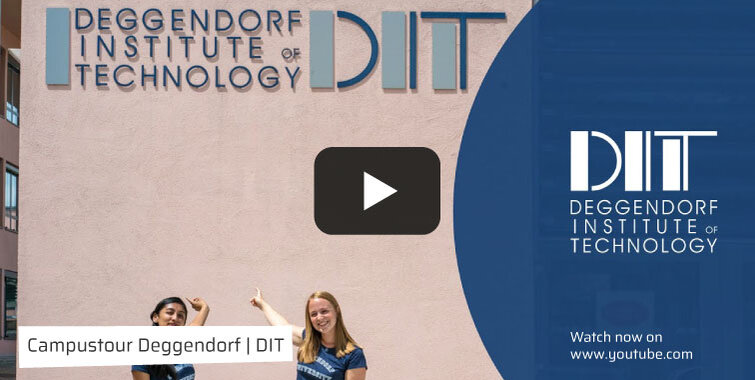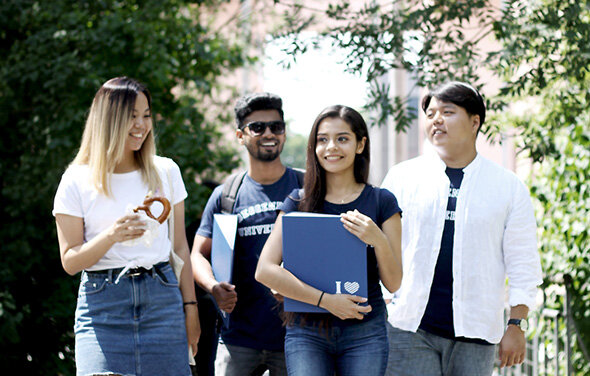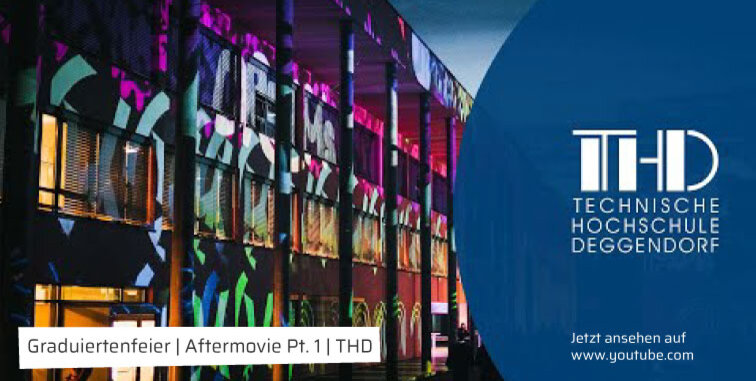Welcome to dit
everything you need to know about your studies at dit
start your studies
New university app available now!
Our new university app myTHD is now available for download.
Whether you're on the go, in a lecture, or at the cafeteria – the app offers you quick access to all important information about your studies and the university.
As a central platform, it combines numerous functions that make everyday student life easier and more organised:
- Lecture schedules
- Exam dates and grades
- University emails
- iLearn
- Daily canteen menu
- Internships & jobs via the career portal
- Personal calendar
- Newsfeed with updates, offers, and events at DIT
Download now and get started:
- Download für Android: myTHD Android
- Download iOS: myTHD iOS
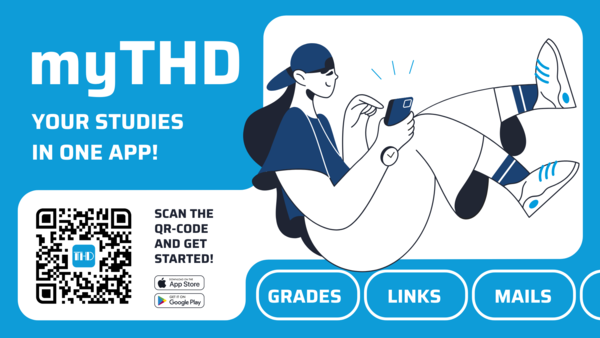
quicklinks
organisation of your studies
Experience & Contribute to the Campus
career, jobs & financing
support and contact
after your studies
events
news
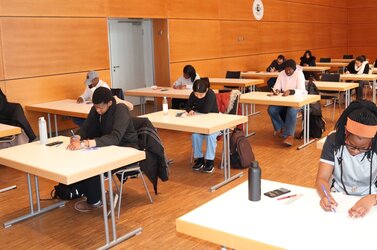
Months of intensive preparation are behind them. Now it's time for exams at the European Campus Rottal-Inn (ECRI) of the Deggendorf Institute of Technology (DIT/THD). All 1,575 students are required to demonstrate their knowledge in a total of 235 exams in nine degree programs in accordance with their curricula. The exam period lasts three weeks until February 13.
“Please be quiet. Examination”
The exam period is in full swing. Signs in front of the lecture halls urge people to be quiet so as not to disturb the students. Behind the closed campus doors and in the city hall (Stadthalle), the examinees from five bachelor's and four master's degree programs are poring over the tasks set for them. They are being tested on their specialist knowledge in the overarching ECRI areas of tourism, health/digitalization, energy/technology, and sustainability/construction. Dean Prof. Christian Steckenbauer is keeping his fingers crossed for all graduates, but also says: “Our curricula are strict, the examinees are not being given anything for free.”
Since students take more than one exam, the ECRI study center has received up to ten registrations per capita in some cases. With 78 registrations, the bachelor's degree program in Industrial Engineering accounts for the largest single examination in “Principles in Business & Economics”.
Exams also in the city hall
The exams are not only held in the campus lecture halls. For space reasons, a number of exams are moved to the spacious city hall. This means that the tests do not have to be spread across several rooms. The following applies to all exams: The use of electronic devices such as cell phones is not permitted during the exam. For the first time, checks will be carried out to ensure that no artificial intelligence (AI) is used.
As always, the focus is on written exams. However, oral exams and the timely submission of research papers are also part of the requirements. “The exam requirements are strict,” confirms Birgit Espertshuber, head of department at the ECRI Study Center. According to her, repeated failure to meet deadlines will result in de-registration.
Grades announced in March
Mandatory retakes have already taken place, as have the compulsory language exams. Students and lecturers alike hope for the best possible results in all exams. The results will be announced starting March 2. For students in advanced semesters, bachelor's and master's theses are on the agenda in addition to exams.
The European Campus Rottal-Inn in Pfarrkirchen has been the international study location of the Deggendorf Institute of Technology for eleven years. Currently, students come from around 100 countries in Europe, Asia, Africa, and America. “In addition to technical training, there is a special focus on teaching German language skills,” says Prof. Dr. Steckenbauer.
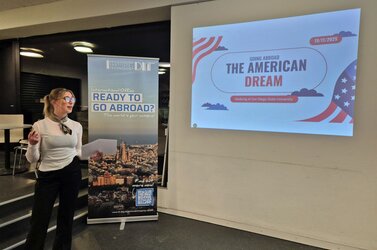
From November 10th to 20th, the International Office of Deggendorf Institute of Technology (DIT) transformed the campus into a gateway to the world. The Go Global Weeks offered students not only information, but also inspiration and the courage to take the step abroad. A variety of events provided opportunities to learn about exchange programs, internships, and countries, and to alleviate fears through personal experience reports.
Academic Advantage and New Opportunities
The series was opened with "Ready for Abroad?", an event that gave an overview of the possibilities and advantages of a stay abroad. International experience is not only an academic advantage but also promotes independence and opens up new opportunities, including an international career start. For this purpose, the event "Five Steps to an International Internship" was held, which explained how to successfully start an internship abroad.
Focus on Europe with Erasmus+
A highlight of the first week was the Erasmus+ Day, which focused on the European area within the framework of the Erasmus+ program. An information session on financing, funding opportunities, and application processes was followed by a Meet & Greet with students who reported on their semesters abroad in Spain, Finland, Hungary, and even Aruba.
Global Perspectives and Intercultural Training
The second week broadened the view for global perspectives. The South Korea Workshop was particularly impressive, designed by two Korean exchange students who introduced their homeland, language, and university. This direct exchange conveyed a vivid picture of life in South Korea. This was complemented by an Intercultural Training that sensitized students to cultural differences and prepared them for international situations.
Special Guest from Australia and Experience Reports
The highlight of the second week was the "Go Global" Day. In addition to information on worldwide study options and funding opportunities, the University of the Sunshine Coast from Australia presented itself as a special guest. This day was also rounded off with experience reports from former exchange students about countries like Brazil, Canada, South Korea, and Hawaii.
Emotional and Interpersonal Dimension
The Go Global Weeks 2025 were thus far more than just information events. They conveyed not only facts but also the emotional and interpersonal dimension of a stay abroad. Overall, it was a successful impetus to overcome borders and broaden one's own horizons, both geographically and mentally.
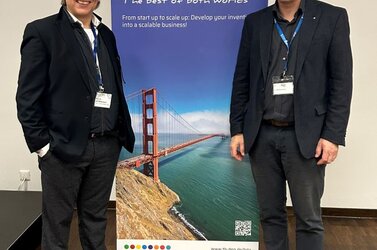
As part of the BITZ OPEN series of events, the Bavarian Innovation and Transformation Centre (BITZ) at the Deggendorf Institute of Technology (DIT) in Oberschneiding welcomed Dr. Michael Richter from Fraunhofer IGB – Straubing site as keynote speaker on 13 November. His lecture on ‘Bio-inspired Chemistry’ attracted a large and very interested audience and also marked the start of a potential, promising collaboration between the Lower Bavarian institutions.
Dr. Richter presented the innovative approach of bio-inspired chemistry, which promises a fundamental shift towards more sustainable products. This approach differs fundamentally from the synthesis of fossil-based products. At its core, it involves searching for exclusive molecules in nature and integrating them functionally into chemicals and materials as bio-based building blocks in order to create products with a significant functional advantage.
In his presentation, Dr. Richter discussed the development of innovative polyamides from natural terpenes (the main components of essential oils). He also presented novel approaches to the use of proteins for sustainable adhesive systems, using chicken feathers as an example. In the publication ‘An environmentally friendly process for the specific decomposition of chicken feather keratin into polythiol building blocks’, Dr. Richter's research group describes the ‘green’ methodology behind this process.
Finally, the potential of bioelectrocatalysis and its contribution to alternative concepts of electricity-driven enzymatic fine chemical synthesis was discussed.
The event made it clear that there are considerable overlaps and synergies between the neighbouring Lower Bavarian institutions. ‘Both institutions bring solution and acceleration expertise as well as an agile start-up mindset to the table,’ emphasise the hosts. This combined strength opens up the potential to become even more powerful – especially in diverse collaborations with regional companies. The aim is to deepen this cooperation in the near future.
The lively interest in the event confirmed the relevance of the topic: in view of the current challenges in Europe, green chemistry and sustainability are key factors that must also be considered in the context of resilience, sovereignty and security.

